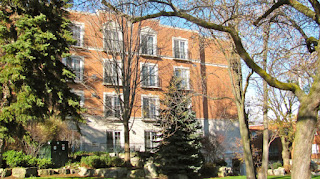Canadian tax man and flipping property...caution!
On Sept. 6, 2012, in the case of Sylvie Giguère (tcc-cci.gc.ca), Ms. Giguère and her spouse lost a court battle on this issue. The couple had sold seven single-family residences within a six-year period, claiming the PRE on each sale.
In this case, they had owned the properties for periods ranging from just over three months to just under two years. CRA successfully argued that the profits should be taxed as business income and that, in addition, gross negligence penalties should apply for failure to report the income.
In this case, the court concluded that the intention of the taxpayers was to buy the properties and sell them for a profit, not to live in each property as a principal residence. This intention, along with the frequency of their “flips” led the court to the conclusion that, for this taxpayer, the real estate sales were an “adventure in the nature of trade.”
The criteria
If the taxman considers your activity to be an “adventure in the nature of trade” he’ll look to tax you on any profits as business income. In its publication IT-459, Adventure or Concern in the Nature of Trade, CRA says that: “It is a general principle that when a person habitually does a thing that is capable of producing a profit, then he is carrying on a trade or business notwithstanding that these activities may be quite separate and apart from his ordinary occupation.”
The court case Happy Valley Farms Ltd. (1986) established certain criteria as the benchmark for taxpayers and the CRA to consider when assessing whether an activity is an adventure in the nature of trade.
That decision established the following criteria to look at: (1) the nature of the property sold, (2) the length of the period of ownership of the property, (3) the frequency or number of other similar transactions by the taxpayer, (4) the work expended to make the property more marketable or to attract purchasers, (5) the circumstances responsible for the sale of the property, and (6) the taxpayer’s motive or intention at the time he acquired the property.
It appears that, in the case of the sale of principal residences, the courts and CRA look most closely at your intention at the time you purchased the properties and the frequency or number of times you’ve completed similar transactions.
If you’re going to buy and sell properties and you hope to use the PRE to shelter the properties from tax, be sure to look at the six criteria established in the Happy Valley court decision and structure your transactions accordingly.















